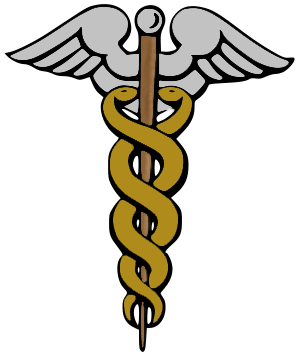
Medical Benefits
Medical evidence acquired over the past century overwhelmingly indicates that circumcision provides significant health benefits not only to individual males of all ages but also to the partners of those who are sexually active. The public health implications alone are such that routine circumcision should be seriously considered, and indeed this is the case, especially in Africa. With the worldwide male circumcision rate somewhere between 30% and 40%, and rapidly increasing, now is the time to promote universal circumcision, especially of infants since they have most to benefit.
Penile and cervical cancer
It has been known for more than a century that men circumcised in infancy are virtually immune from cancer of the penis, and that their wives are less likely to suffer from cervical cancer. Circumcision later in life offers a reduced level of protection. The medical explanation has only been uncovered recently. Both diseases are caused by specific strains of human papilloma (wart) virus. Genital warts are often passed on by sexual connection, but can also be transferred non-sexually. Most are harmless but some are carcinogenic. Circumcised boys do not have the moist environment under the foreskin where warts can develop, and so are unlikely to get infected by either route.
Penile cancer is often represented as a rare disease, but that is because the annual rate of contracting it is quoted as if it were the lifetime rate. A man's life expectancy is ~72 years! And it effectively only affects uncircumcised men. The lifetime risk for an uncircumcised man in a developed country is between 1 in 1000 and 1 in 1,500. This is not rare. In developing countries with lower standards of medical care penile cancer is one of the commonest cancers affecting men.
Urinary Tract Infections UTIsIn the 1980s a series of massive studies carried out by Tom Wiswell in the USA showed that circumcised infants were were much less liable to urinary tract intections. The prevalence in uncircumcised boys was 10 to 20 times higher. These infections are not normally serious (though they cause high fevers in babies) but some will lead to kidney damage and further complications. A baby is much more likely to die from complications of a UTI than from circumcision.
Subsequent research has shown that the protective effect of circumcision continues through childhood and into adulthood, though it is less marked.
Phimosis and ParaphimosisIt goes without saying that a circumcised man cannot suffer from phimosis (inability to retract the foreskin). This is not really a medical condition, but paraphimosis (inability to replace a retracted foreskin over the glans) needs to be treated as a medical emergency since the possible effects (preventing urination, cutting off blood supply) can be serious.
BalanitisBalanitis is inflammation of the glans penis, and is totally prevented by circumcision. Most cases are mild bacterial infections, but a serious form, Balanitis xerotica obliterans (BXO), can cause major harm. Its cause is unknown. Circumcision prevents it, and if the problem is detected early may cure it, though further treatment may be needed.
Human Immunodeficiency Virus (HIV) - the cause of AIDSCircumcision greatly reduces the risk of female to male transmission of HIV infection. This is not a major issue in the West, where other methods ot transmission account for most cases of AIDS, but it is very relevant in other countries where AIDS is very prevalent, mostly among heterosexual people. For this reason mass circumcision programs are being carried out in many African countries(see elsewhere on this site). The aim of these programs is public health, but the benefit to the individual young men and boys is also very significant.
Thrush - CandidiasisThis is an infection by a yeast fungus, one of several members of the genus Candida. These can infect many different parts of the body, including the vagina and the uncircumcised penis. Circumcised men do not develop symptoms but unfortunately can still carry the infection.
Other STIsClaims have been made that circumcision offers some protection from many other sexually transmitted infections. This is still controversial and should not be part of a circumcision decision.
Prostate CancerVery recently evidence has suggested that circumcision also confers some protection against prostate cancer, a relatively common male cancer. Look out for more on this.
For more details about the medical benefits, including references to the medical literature, check out the medical page on aboutcirc. Fot the latest research results, check Professor Brian Morris' page
Copyright © 1992 - 2016, All Rights Reserved CIRCLIST.